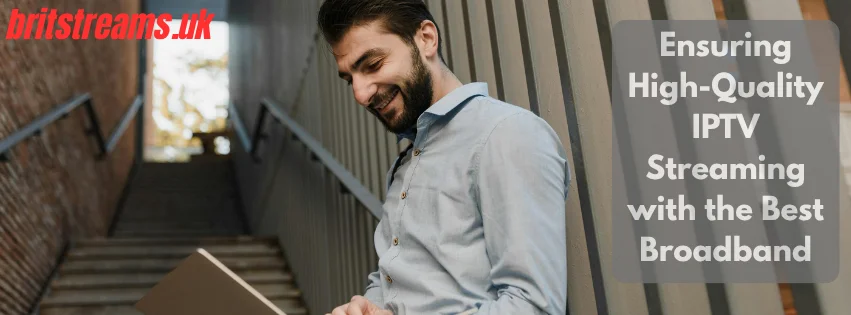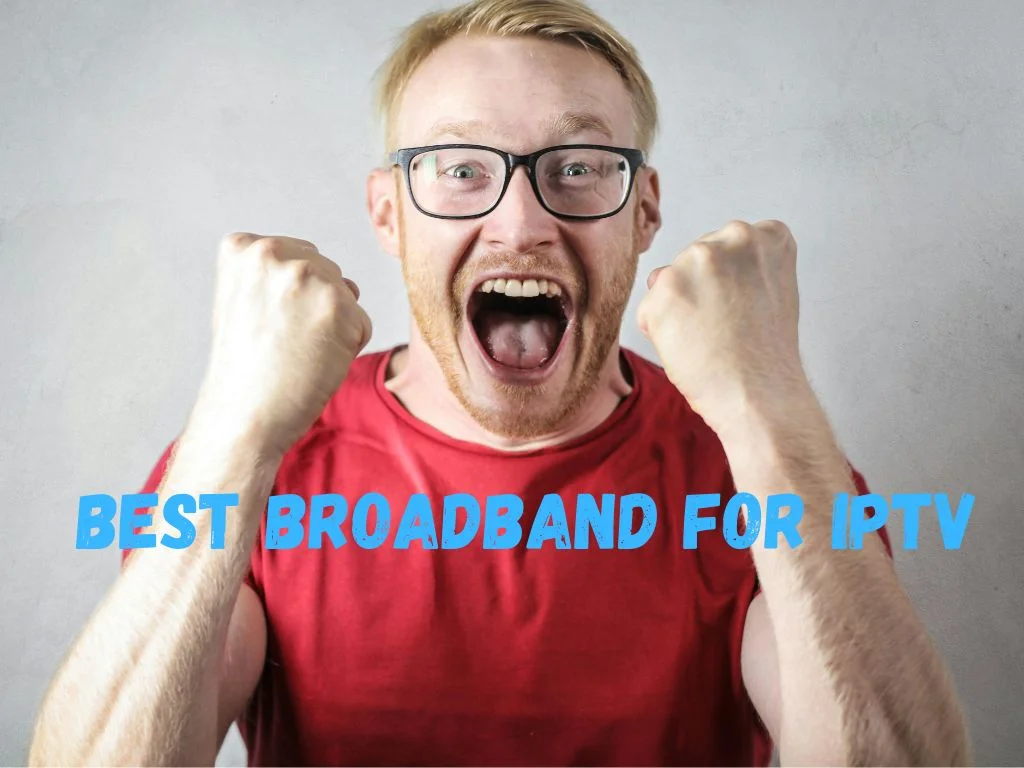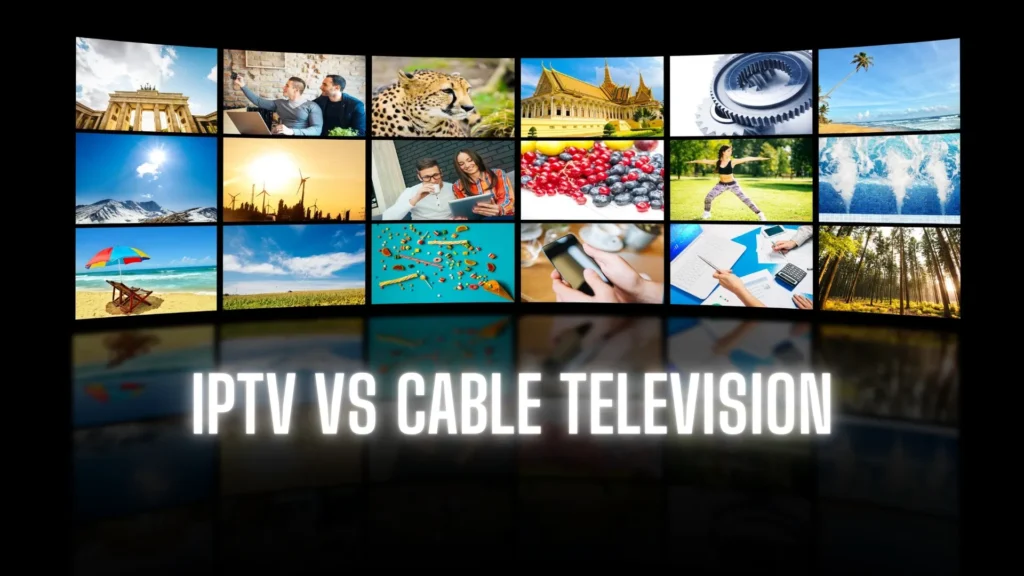As a tech enthusiast who spends a fair amount of time exploring the latest in digital entertainment, I’ve come to realise how important a fast, reliable internet connection is when it comes to enjoying high-quality IPTV. For years, I relied on traditional cable services, only to find that they often lacked the flexibility and diversity that IPTV offered. When I first heard about IPTV (Internet Protocol Television), I was intrigued, but I was also cautious. Would it live up to the hype? How would I ensure that I had the best broadband for IPTV to make my IPTV experience truly enjoyable?
This article is based on my personal experiences and research to help you discover what works best for IPTV streaming in 2025. I will share my insights on choosing the best broadband for IPTV, including key features to look for, the significance of broadband speed, latency, and the top IPTV providers that I trust.
Table of Contents:
- What is IPTV? A Personal Introduction
- The Key Advantages of IPTV: Why I Switched
- Why Broadband Speed Matters for IPTV Streaming
- The Role of Latency in IPTV Viewing Experience
- Understanding IPTV Providers and IPTV Free Trials
- How to Choose the Best Broadband for IPTV in 2025
- Ensuring Buffer-Free IPTV Streaming with a Strong Broadband Connection
- Final Thoughts: The Best Broadband for IPTV 2025
What is IPTV? A Personal Introduction
When I first encountered IPTV, I had no idea what it was, let alone how it could revolutionise the way I watched TV. In a nutshell, IPTV uses your internet connection to stream television content, rather than traditional cable or satellite methods. This means you’re no longer dependent on cables running through your house or satellite dishes perched on your roof. Instead, you get a seamless, digital stream delivered straight to your device—whether it’s your smart TV, laptop, tablet, or even your phone.
One of the main appeals of IPTV is the sheer variety of content available. Unlike traditional TV, IPTV can give you access to hundreds or even thousands of channels from around the world. Additionally, with many IPTV services, you get access to on-demand content, which is something traditional cable services can’t always offer.
GET YOUR SUBSCRIPTION NOW
The Key Advantages of IPTV: Why I Switched

I can still remember the moment when I decided to give IPTV a try. After years of paying hefty bills for cable subscriptions, the idea of paying for IPTV, and potentially getting access to more content for less, was hard to ignore.
The following are the main benefits of IPTV that persuaded me to switch:
- Cost-Effectiveness: IPTV is often cheaper than traditional cable or satellite subscriptions, especially when considering the sheer variety of channels and on-demand content available.
- Greater Flexibility: Unlike cable or satellite, IPTV allows you to watch content anywhere, anytime, on any compatible device.
- Variety of Content: From live TV and sports channels to exclusive movies and shows, the range of content IPTV offers is unparalleled. There’s always something for everyone.
- On-Demand and Time-Shifting: With IPTV, I could watch shows at my convenience rather than being restricted to the network’s schedule. If I missed a live broadcast, I could easily access it later.
Why Broadband Speed Matters for IPTV Streaming
I didn’t realize how crucial broadband speed was for streaming until i started using IPTV. Although i was fortunate to have a good internet connection at home, i soon discovered that IPTV was not the same as other internet connections.
To enjoy IPTV to its fullest, you need fast, reliable broadband. Here’s why:
- Buffer-Free Streaming: Fast broadband means no interruptions during your shows. Buffering or low-quality streams can quickly ruin your experience.
- High-Quality Content: If you want to watch 4K or HD content, you’ll need sufficient speed to stream these high-resolution videos without lag or pixelation.
- Stable Connection: IPTV is reliant on a stable internet connection. A slow or unstable connection can cause frequent disruptions, and trust me, it’s incredibly frustrating to watch your favourite show freeze in the middle of a climactic scene.
The Role of Latency in IPTV Viewing Experience

In my experience, latency—often referred to as ping or lag—plays a significant role in how smooth your IPTV experience will be. Latency refers to the delay between when a request is made (like pressing play on a video) and when the action actually happens.
While this may not be as noticeable when streaming regular videos, it becomes a critical factor when it comes to IPTV, especially if you’re watching live sports or events. The lower the latency, the smoother your stream will be. A high-latency connection can lead to frustrating delays, lag, or poor-quality streams. This is why a low-latency broadband connection is essential for the best IPTV experience.
Understanding IPTV Providers and IPTV Free Trials
Choosing the right IPTV provider can be just as important as selecting the best broadband. Over the years, I’ve come across a number of IPTV services, each with their unique features. But one thing that stood out to me was the availability of IPTV free trials. This was a game-changer because it allowed me to test the service before committing long-term.
Most reputable IPTV providers offer free trials, usually ranging from 7 to 30 days. During the trial, I had the opportunity to explore their channel offerings, user interface, and streaming quality. This was invaluable in helping me decide which provider best suited my needs.
How to Choose the Best Broadband for IPTV in 2025

When it comes to picking the best broadband for IPTV, there are several factors to consider. Based on my own experience, I’ve found the following to be crucial:
- Download Speed: At a minimum, you should be looking at speeds of 25 Mbps for standard-definition content, 50 Mbps for HD content, and 100 Mbps or higher for 4K content.
- Upload Speed: Although IPTV mainly relies on download speeds, a good upload speed is essential for smooth streaming, especially if you’re hosting IPTV services at home.
- Data Caps: Many internet service providers (ISPs) impose data caps, limiting how much data you can consume each month. Streaming IPTV can quickly eat up data, so I recommend opting for an ISP with no data caps or a plan with generous data limits.
- Reliability and Stability: A strong, consistent connection is key. This is where fibre-optic broadband excels, as it provides the most reliable connection for heavy streaming.
Ensuring Buffer-Free IPTV Streaming with a Strong Broadband Connection

No one likes waiting for a video to buffer, especially during a crucial moment in a live event. To ensure buffer-free IPTV streaming, a fast, stable, and low-latency broadband connection is essential. You should also ensure that your home network is optimized, with minimal interference and congestion, and that your devices are capable of handling high-quality streams.
Final Thoughts: The Best Broadband for IPTV 2025
Choosing the right broadband for IPTV isn’t just about picking the fastest speed—it’s about reliability, stability, and ensuring you have the right plan for your streaming needs. With the right broadband and IPTV provider, you can enjoy a world of content, from live TV to on-demand movies, all at the highest quality. Based on my own experience, I’ve found that fibre-optic broadband offers the best overall experience, with minimal interruptions and the speed required for buffer-free IPTV.
Remember to take advantage of IPTV free trials, test your connection, and choose an IPTV provider that aligns with your preferences. With the right setup, 2025 will be a great year for IPTV streaming!



